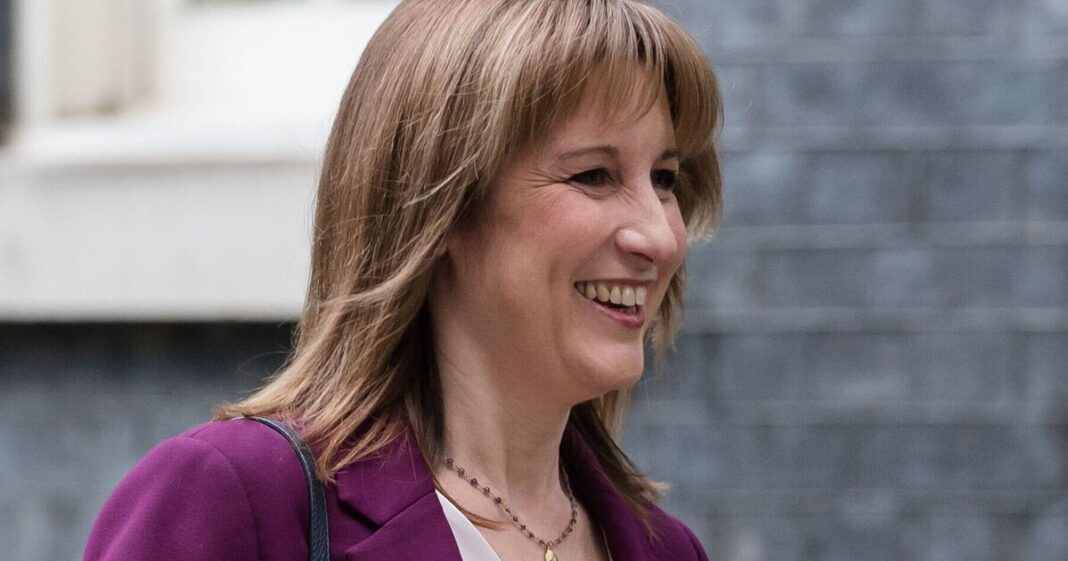High earners could see almost £50,000 wiped off their retirement pots if Rachel Reeves presses ahead with plans to cap popular salary sacrifice schemes, analysis shows.
The move would hit millions of private sector workers who currently save tax and National Insurance by giving up part of their salary in return for pension contributions and other benefits.
At present, employees can use the scheme to pay up to £60,000 a year tax-free into their pension. But under Treasury plans, the Chancellor is expected to cap the tax break at £2,000 a year, meaning any higher contributions would be subject to National Insurance.
Those earning under £50,270 would face an 8 per cent National Insurance charge on the extra amount, while higher earners would pay an additional 2 per cent.
Analysis by AJ Bell, reported in The Times, found that a 35-year-old earning £100,000 today could be £49,682 worse off by the time they retire at 65 if the proposed cap comes into force.
A worker earning £75,000 would lose £37,201, while someone on £50,000 would see their pension shrink by £22,060. Even a modest earner on £40,000 would be £20,101 worse off over their lifetime.
Rachel Vahey, head of public policy at AJ Bell, told the Times: “It is possible some employers will scrap their salary sacrifice scheme if these changes add significant complexity and negate many of the benefits of offering it.”
The analysis assumed a 3 per cent annual pay rise, 5 per cent investment growth and a £30,000 starting pension pot.
Vahey added that while the reforms would hit higher earners hardest, they may still have ways to reduce taxable income:
“You can still make pension contributions to bring your earnings below the £100,000 threshold, even without using salary sacrifice.”
Experts warned the move would deepen the divide between public and private sector pensions, since salary sacrifice is far more common in private firms.
Around 30 per cent of private sector employees use the scheme, compared with just 9 per cent in the public sector, according to the Office for National Statistics.
Public sector staff tend to enjoy generous defined benefit pensions guaranteeing an inflation-linked income for life – a luxury most private sector workers no longer have.
Pensions expert Tom McPhail said the reforms would have little impact on the public sector because their salary sacrifice use is limited to small, voluntary contributions.
David Brooks, of consultancy Broadstone, said: “Salary sacrifice is far more prevalent in the private sector. Any cap will therefore disproportionately hit private sector workers.”
Mike Ambery, from Standard Life, added that the cap would “add complexity at a time when simplicity and engagement are crucial to boosting savings levels”.
Industry bodies have urged the Chancellor to reconsider, warning the change could undermine confidence in the pension system and reduce long-term saving.
Zoe Alexander, from Pensions UK, said: “Employers using salary sacrifice are more likely to be contributing above the automatic enrolment minimum. Limiting it will hit those trying to do the right thing by their employees.”
Currently, the minimum auto-enrolment contribution of 8 per cent is widely regarded as insufficient for a comfortable retirement, yet fewer than half of private sector workers pay more than that, according to the Institute for Fiscal Studies.
The Society of Pension Professionals (SPP) has written to all 650 MPs warning that scrapping or reducing salary sacrifice would be a “false economy”.
While the Treasury spends an estimated £4.1 billion supporting the system, the SPP said this was “a positive investment” that encourages saving.
Helen Morrissey, of Hargreaves Lansdown, said: “Changing the scheme could mean less money going into pensions and members ending up with poorer outcomes.”


